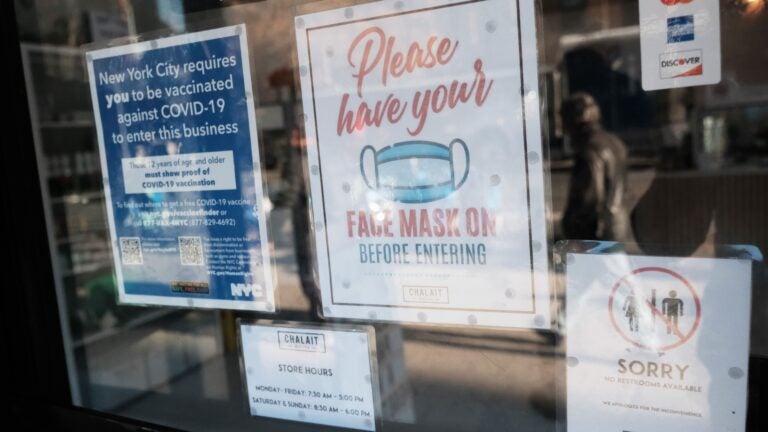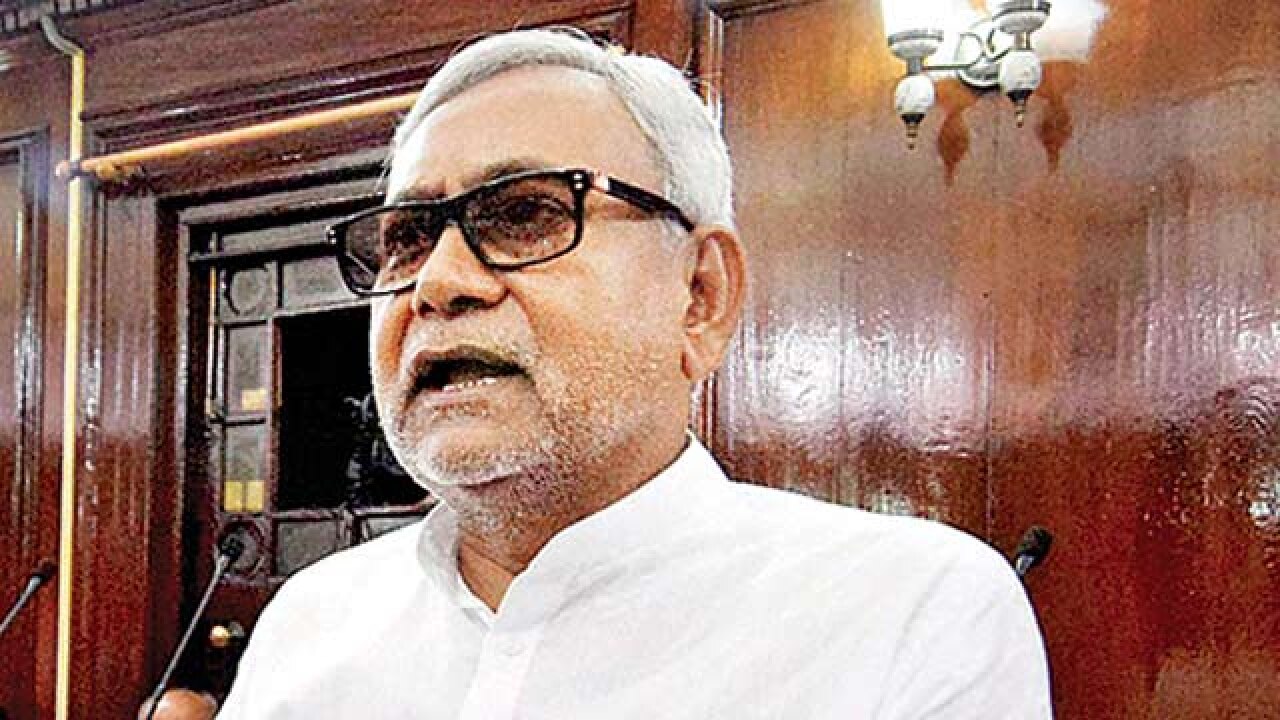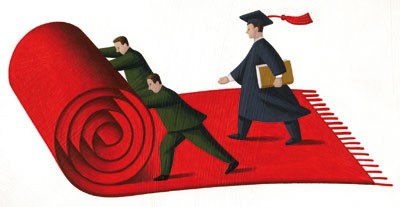
- Select a language for the TTS:
- UK English Female
- UK English Male
- US English Female
- US English Male
- Australian Female
- Australian Male
- Language selected: (auto detect) - EN
Play all audios:
COVID "I DON'T THINK THE PATH OUT OF THIS PANDEMIC — OR EVEN THROUGH THIS SURGE — IS MASKING THE VACCINATED." Amid a sharp increase in COVID-19 cases and hospitalizations in
Massachusetts amid the holiday season, a growing number of local disease experts are calling on Gov. Charlie Baker to reimpose a statewide indoor mask mandate. But not all of them. Joseph
Allen, a professor at Harvard’s T. H. Chan School of Public Health and an expert on disease exposure, says state and local officials should be taking more aggressive action to require the
vaccine, rather than requiring universal masking, even with COVID-19 rates at their highest levels since last winter. “I don’t think the path out of this pandemic — or even through this
surge — is masking the vaccinated,” Allen told reporters during a conference call Tuesday. Advertisement: “Let’s be clear: masks work,” he said. “I’ve been a big proponent of universal
masking for a long time. I think the vaccines changed that.” Allen says he would advise officials in Massachusetts to follow in the footsteps of New York’s recently implemented policy
requiring masks only in indoor public places that do not require proof of vaccination for entry. “The vaccine mandates are something that we’ve been really far behind on,” Allen said. “We
should have been doing it several months ago. I absolutely think we should be doing it right now.” But so far, none have. While dozens of cities and towns — including Boston — require masks
in all indoor public places regardless of vaccination status, none have implemented policies requiring individuals to show proof of vaccination for indoor venues like restaurants, gyms, and
theaters. Advertisement: Some individual businesses have implemented the policy themselves, and Boston Mayor Michelle Wu has said her office is internally discussing a potential citywide
vaccination requirement for restaurants and other indoor venues. However, Gov. Charlie Baker has stood opposed to the policy at the statewide level (Baker also said Monday that there are no
plans to reimpose any statewide mask mandate). Even in the face of more transmissible variants, preliminary research indicates that the two-shot mRNA vaccines remain largely effective at
preventing severe disease from COVID-19. Allen notes that individuals who have gotten an additional booster shot face a “much lower risk of any infection.” While unvaccinated individuals
should continue masking, Allen doesn’t think it’s necessary in a fully vaccinated environment (the Baker administration’s current guidelines take a similar individual-based approach,
recommending indoor masking for the unvaccinated and other high-risk groups, like the elderly). “If you’re vaccinated and boosted, there’s little additional benefit to masking,” Allen said.
“I don’t think that’s going to be the policy lever that’s most important at this point.” For that reason, he thinks the Centers for Disease Control and Prevention’s guidelines for universal
indoor masking are “really deeply flawed.” “They’re solely tracking cases and percent positivity,” Allen said, noting that those numbers don’t distinguish between a vaccinated 20-year-old
and an unvaccinated 80-year-old, who have extraordinarily different risk levels. Advertisement: Similar to COVID-19 wastewater data, Allen says the infection rate measurements are a good
indicator of “community spread,” but not “community risk.” “Some of these metrics are just not appropriate for the moment,” he said. Instead, Allen says the most important risk determinants
are age and vaccination status. While about 73 percent of the entire Massachusetts population is fully vaccinated, unvaccinated individuals account for 70 percent of the state’s COVID-19
hospitalizations. The average age of all COVID-19 fatalities in Massachusetts is 75 years old. “Anyone who wants to wear masks should absolutely continue to wear a mask,” Allen said. “The
benefits of masks are not only when everyone’s wearing a mask; if you’re wearing a high efficiency mask, you’re very well protected. So I think we’ve reached that moment that might feel
uncomfortable for a lot of people and that some of this individual decision-making really is going to matter. And I understand people being reluctant at different points to pull back on
controls. But we have the tools to keep people safe.” Vaccines aren’t the only tool. Allen, who literally wrote a book about making indoor spaces healthier, says officials should be doubling
down on improving ventilation and air filtration, including with cheap, short-term tools like portable air purifiers. He also says rapid tests should be more cheap and accessible,
especially in low-income communities. Advertisement: But Allen returns to vaccine requirements as the most impactful policy (he also echoes other top health experts’ opinion that “fully
vaccinated” will eventually include boosters). Allen points to worker mandates — like ones enforced by the U.S. military or New York City — that increase vaccination rates among employees to
around 90 percent. “I think every organization should be doing it,” Allen said, noting that states have “routinely” required vaccines for various employees and students long before
COVID-19. “It’s good public health, and it’s good business health,” he said. “I mean, look around. Look what this pandemic has done to lives, livelihoods, the economy. Entire sectors have
been absolutely devastated. We have been given a tool that can end this.” NEWSLETTER SIGNUP Stay up to date on all the latest news from Boston.com










